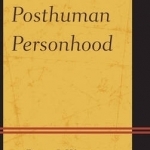Posthuman Personhood
BookThis item doesn’t have any media yet
2013 | Natural World
Posthuman Personhood takes up the ethical challenge posed by Francis Fukuyama's work, Our Posthuman Future. Daryl J. Wennemann argues that the traditional concept of personhood may be fruitfully applied to the ethical challenge we face in a posthuman age. He draws upon Wilfrid Sellars' treatment of the concept of a person within "the manifest image of man in the world." Sellars proposed that we develop a stereoscopic view of reality that includes both a scientific understanding of the world and a meaningful place for persons living and acting in the world. Following Mary Anne Warren, Wennemann develops a distinction between two meanings of the term "human," a biological meaning and a moral meaning, and maintains that all (biologically) human beings are persons. But, it is not necessarily the case that all persons must be (biologically) human. After drawing on a contemporary version of Kant's distinction between a theoretical possibility and a real possibility, the book posits that biologically non-human persons like robots, computers, or aliens are a theoretical possibility but that we do not know if they are a real possibility.
Finally, Wennemann describes an ethic of self-limitation for the posthuman age.
Related Items:
| Published by | University Press of America |
| Edition | Unknown |
| ISBN | 9780761861034 |
| Language | N/A |
Images And Data Courtesy Of: University Press of America.
This content (including text, images, videos and other media) is published and used in accordance
with Fair Use.
